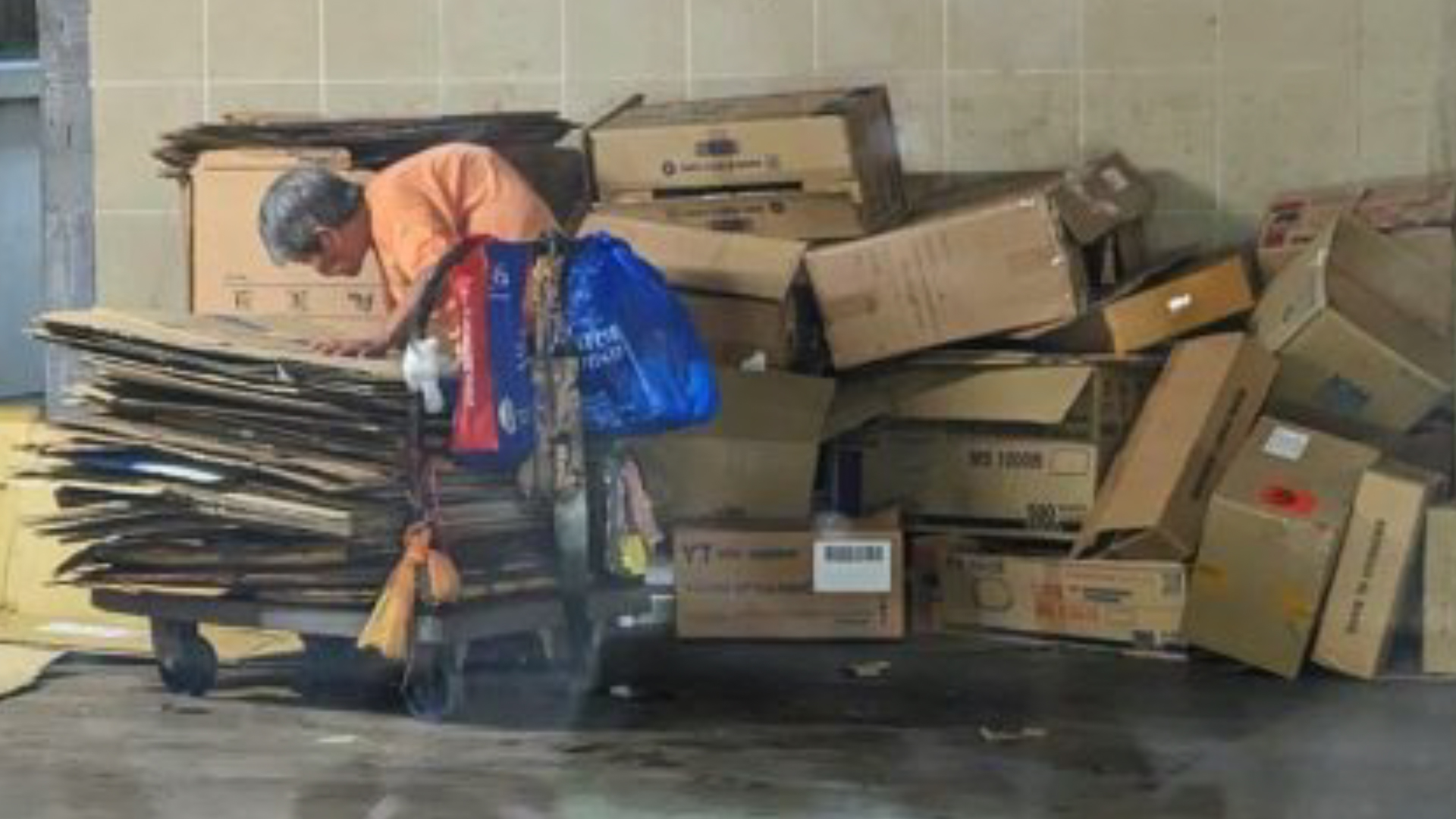As we celebrate the year of the rabbit, we must remember those around us who may have less than us and may be less fortunate. A taxi driver, Ghazali M Sadip, shared a picture of an elderly woman, back bent, collecting cardboard boxes on the eve of Chinese New Year at Bukit Merah Central, saying that it broke his heart.
Recently, Deputy Prime Minister Lawrence Wong said that many Singaporeans prefer to work past retirement. “A lot of people recognise that the minute they stop working, that’s when their health deteriorate very quickly,” he said, adding that work gives people “dignity and purpose.” While this may be true for some, I do not believe this to be the case for the elderly lady pictured by Mr Ghazali. In her case, it might well be that work is causing her health to decline.
Perhaps, Mr Wong was not referring to people like this elderly lady when he talks about ongoing work, but it is important for us as a society not to forget that there lives among us, a group of elderly folk who go on doing back-breaking work, not because they want to keep active, but because they simply cannot afford not to work.
As a first-world nation, this is just not something that should be happening at all, and as most of us bemoan the rising costs of everything, it is imperative to remember that these elderly people will feel the effects of this so much more.
As a society, we have always prided ourselves on the values of filial piety and respecting our elders, but yet, this phenomenon of old people doing labour-intensive work continues to be a relatively common sight.
Yet, these are the effects of a system that provides limited social safety nets and does not have a minimum wage. As our country pushes ahead with the Goods & Services Tax (GST) hikes, will this become even more of a common sight?
I hope not.
While the Government can do more and better for these old folk, it is important to remember that we as a society are also empowered to show greater kindness, empathy, and consideration.
That kindness and consideration come in large part from us seeking to see what brings us together more than what separates us, which leads to growing concern that we are becoming a society that is quick to embrace the so-called “cancel” culture.
Tay Kheng Soon, a well-known architect and an adjunct professor at the National University of Singapore (NUS), has shared on Facebook that he left NUS because they were told he was a racist.
Prof Tay thinks that the accusations may have risen from his Facebook post, where he shared a report by an American journalist who claimed that all the tech companies are now headed by Indians.
If this is indeed the case, we should all be concerned. Racism should have no place in society, but what constitutes racism? The accusation of racism should not be used to attack comments that simply cause offence because a particular reader is triggered by it. Since when has the sharing of data constituted racism? There is a big difference between subjective offence and objective racism.
If we are not allowed to discuss things openly, we will stop the proliferation of new ideas and become a stagnant and repressed society.
In 2018, the Police questioned Prof Tay regarding a Facebook post he had put up. At that time, Prof Tay had posted a picture of the Genocide Memorial in Armenia, which he visited and wrote that he saw and learnt of the 1.5 million Armenian Christians exterminated by the Ottoman Turks in 1911.
This resulted in a person named Azhari Ali objecting to his characterisation of the event, claiming Tay had “unfairly singled out Islam”, even though that was not the post’s intention.
Again, this is a case that is concerning. Are we not permitted to state facts? Facts are facts, whether one likes them or not.
For example, if I were to say that the Japanese massacred thousands of Chinese in Nanking, am I racist against the Japanese? Clearly not. I am simply talking about a historical event.
If we reach a point where we do not allow our fellow citizens to talk about historical events or share data openly, then we become a society that is unable to take ownership of our own triggers and issues. We will become a society that is very unkind to one another and that which creates separation and disunity.
To reiterate, I am in no way, shape or form suggesting that racism does not exist or is in any way acceptable.
I am saying that not everything is racist, and to label everything that causes offence as such makes light of those who have genuinely suffered racism. It also dangerously makes us unable to separate fact from feeling.
PS Your feelings do not represent reality or facts. Feelings change and are subjective. Facts are not!

